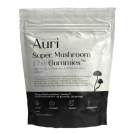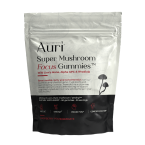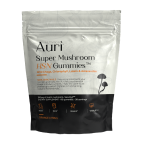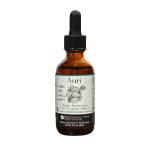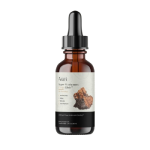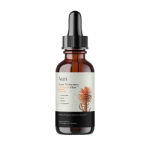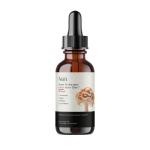Den Nebel lichten: Gehirnnebel verstehen und überwinden

Hatten Sie schon einmal das Gefühl, Ihr Gehirn sei in Nebel gehüllt und Sie könnten nicht klar denken oder sich an die einfachsten Einzelheiten erinnern?
Was ist Gehirnnebel und warum scheint er gerade dann zu schweben, wenn Sie Klarheit am meisten brauchen?
Brain Fog ist nicht nur ein kleines Ärgernis – es ist eine erhebliche Hürde, die Ihre tägliche Produktivität, Ihre Entscheidungsfindung und Ihre allgemeine Lebensqualität beeinträchtigt. Dieser Zustand, oft als geistige Verwirrung oder Vergesslichkeit beschrieben, kann dazu führen, dass Sie sich distanziert und frustriert fühlen.
Doch was genau löst diesen Zustand der Benommenheit aus? Gibt es wirksame Methoden, um den Nebel zu lichten und die geistige Schärfe wiederzuerlangen?
Glücklicherweise hat sich Auri Nutrition auf Nahrungsergänzungsmittel auf Pilzbasis spezialisiert, die speziell gegen Gehirnnebel und zur Verbesserung der geistigen Klarheit entwickelt wurden. Mit unseren fachmännisch entwickelten Produkten können Sie proaktiv gegen den Nebel vorgehen und klareres, schärferes Denken erreichen.
Lesen Sie weiter, um den Nebel im Kopf besser zu verstehen und zu erfahren, wie Sie ihn überwinden können!
Brain Fog verstehen
Wissenschaftlich gesehen ist Brain Fog ein vorübergehender Zustand verminderter kognitiver Funktionen, der das Gedächtnis, die Klarheit und die Fähigkeit zur Informationsverarbeitung beeinträchtigt.
Brain Fog kann zu Verwirrung und Abkopplung führen. Der spürbare Rückgang der kognitiven Funktionen kann den Alltag beeinträchtigen.
Auri Nutrition ist Vorreiter im Bereich Wellness-Innovation und spezialisiert sich auf Nahrungsergänzungsmittel auf Pilzbasis, die speziell gegen Gehirnnebel und zur Verbesserung der geistigen Klarheit entwickelt wurden. Unsere fachmännisch entwickelten Produkte nutzen die natürliche Kraft von Pilzen, um die kognitiven Funktionen und die allgemeine Gehirngesundheit zu unterstützen.
Das Erkennen der Symptome von Brain Fog ist der erste Schritt zur Wiedererlangung geistiger Klarheit und Konzentration. Zu den häufigsten Symptomen von Brain Fog gehören:
- Anhaltende Müdigkeit und niedrige Energie
- Konzentrations- oder Fokussierungsschwierigkeiten
- Vergesslichkeit und Verwirrung
- Mangel an geistiger Klarheit und Schärfe
- Verlangsamte Denk- und Verarbeitungsgeschwindigkeit
Ursachen und Auslöser
Gehirnnebel ist oft auf Lebensstil und Umweltfaktoren zurückzuführen. Diese zu identifizieren kann der erste Schritt zu mehr Klarheit sein:
- Schlafmangel: Mangelnder Schlaf beeinträchtigt die Gehirnfunktionen.
- Stress und Angst: Diese Emotionen können Ihre kognitiven Fähigkeiten trüben.
- Schlechte Ernährung: Nährstoffmängel beeinträchtigen die kognitive Klarheit.
- Medizinische Beschwerden: Stehen im Zusammenhang mit dem chronischen Erschöpfungssyndrom und anderen gesundheitlichen Problemen.
- Medikamente: Zu den Nebenwirkungen kann eine kognitive Trübung gehören.
- Hormonelles Ungleichgewicht: Kann kognitive Prozesse stören.
Das Erkennen dieser Auslöser ist wichtig, um Brain Fog zu bewältigen. Das Verständnis der Ursachen hilft, Brain Fog von anderen Erkrankungen wie dem chronischen Erschöpfungssyndrom zu unterscheiden und so eine angemessene Behandlung und Bewältigung zu gewährleisten.
Warum habe ich einen benebelten Verstand?
Brain Fog ist frustrierend und kann Ihre geistige Leistungsfähigkeit und Produktivität erheblich beeinträchtigen. Um die obige Frage zu beantworten, untersuchen wir die häufigsten Ursachen für Brain Fog und wie diese Ihre Fähigkeit, klar zu denken, beeinträchtigen können.
Persönliche Faktoren
Ihr Lebensstil spielt eine entscheidende Rolle. Schlechte Schlafgewohnheiten, hoher Stress und eine unzureichende Ernährung können zu Gedächtnisproblemen und Konzentrationsschwäche führen. Wie gut kümmern Sie sich wirklich um Ihren Geist?
Umwelteinflüsse
Manchmal spielt sich nicht alles nur in Ihrem Kopf ab. Umweltfaktoren wie Schadstoffe und Allergene können Ihre kognitiven Fähigkeiten subtil beeinträchtigen . Sind Sie sich bewusst, welchen Einflüssen Sie täglich ausgesetzt sind?
Biologische und neurologische Grundlagen
Brain Fog beinhaltet komplexe biologische und neurologische Wechselwirkungen. Das Verständnis dieser Wechselwirkungen kann Aufschluss darüber geben, warum Störungen der Gehirnaktivität Ihren Alltag beeinträchtigen. Könnte es tiefere Ursachen für Ihren mentalen Nebel geben?
Auswirkungen von Brain Fog
Brain Fog beeinträchtigt Ihre kognitiven Fähigkeiten und Ihr tägliches Funktionieren erheblich. Dieser trübe Geisteszustand kann dazu führen, dass selbst vertraute Aufgaben überwältigend komplex erscheinen.
Lassen Sie uns hier die Welleneffekte untersuchen, die dieser Zustand erzeugen kann.
Kognitive Beeinträchtigung
Brain Fog beeinträchtigt direkt die Leistungsfähigkeit Ihres Gehirns. Probleme mit Gedächtnis, Konzentration und Entscheidungsfindung können auf eine Überlastung des zentralen Nervensystems zurückzuführen sein. Wie scharf war Ihr Verstand in letzter Zeit?
Emotionaler Tribut
Die Frustration und Verwirrung, die mit dem „Gedankennebel“ einhergehen, belasten die Emotionen stark. Sie können zu Stimmungsschwankungen und verminderter Motivation führen. Belastet Ihr „Gedankennebel“ auch Ihre Stimmung?
Auswirkungen auf Produktivität und Leistung
Wenn Ihr Kopf nicht klar ist, sinkt Ihre Leistung. Aufgaben, die einst einfach erschienen, können zur Herausforderung werden und sich sowohl auf Ihre Arbeit als auch auf Ihre persönlichen Projekte auswirken. Finden Sie alltägliche Aufgaben zunehmend schwieriger?
Beziehungsdynamik
Brain Fog betrifft nicht nur Sie, sondern auch Ihr Umfeld. Missverständnisse und Frustrationen können Beziehungen belasten, oft aufgrund mangelnder Geduld und schlechter Kommunikation. Wie hat Ihre geistige Klarheit Ihre Interaktionen beeinflusst?
So erkennen Sie Brain Fog
Brain Fog zu erkennen, kann schwierig sein, da sich seine Symptome oft mit alltäglicher Müdigkeit überschneiden. Dennoch ist es entscheidend, ihn zu erkennen, um die Konzentration zu verbessern.
So können Sie feststellen, ob Sie einfach nur müde sind oder ob Ihnen etwas Ernsteres passiert:
- Selbstüberwachung: Führen Sie über mehrere Wochen ein Tagebuch über Ihre geistige Fitness und kognitiven Funktionen.
- Kognitive Tests: Einfache Online-Tools können Ihnen dabei helfen, Ihre Problemlösungs- und Gedächtnisfähigkeiten einzuschätzen.
- Beurteilung der Schlafqualität: Bewerten Sie Ihre Schlafmuster, um festzustellen, ob eine Schlafstörung Ihre Wachsamkeit beeinträchtigen könnte.
- Stimmungsbeobachtung: Beobachten Sie täglich Ihre Stimmungsschwankungen. Schwankungen können auf ein zugrunde liegendes kognitives Problem hinweisen.
- Aufmerksamkeitsbeurteilungen: Führen Sie einfache Konzentrationstests durch, um festzustellen, ob bei Ihnen typische Symptome der Aufmerksamkeitsdefizit-/Hyperaktivitätsstörung (ADHS) auftreten, die sich als anhaltender geistiger Nebel äußern kann.
Nach der Selbsteinschätzung ist es ratsam, medizinisches Fachpersonal zu konsultieren. Diese können eine tiefere Diagnose stellen und möglicherweise Probleme wie ADHS aufdecken, die zu Ihren Symptomen beitragen könnten. Ihr Fachwissen kann entscheidend sein, um eine Strategie zur Verbesserung der kognitiven Funktionen zu entwickeln und Brain Fog effektiv zu erkennen.
Strategien zur Bewältigung von Brain Fog
Um Brain Fog zu bewältigen, sind eine Kombination aus Lebensstiländerungen und mentalen Übungen erforderlich. So können Sie den mentalen Nebel beseitigen und Ihre kognitiven Fähigkeiten verbessern.
- Verbesserung der Schlafqualität: Wenn Sie dafür sorgen, dass Sie ausreichend Schlaf bekommen, hilft das dabei, Ihre Gehirn- und Körpertemperatur wiederherzustellen.
- Techniken zur Stressreduzierung: Techniken wie Achtsamkeit, Yoga oder Atemübungen reduzieren Stress und verbessern die geistige Konzentration.
- Ausgewogene Ernährung: Eine vitamin- und mineralstoffreiche Ernährung unterstützt das Immunsystem und die Gesundheit des Gehirns.
- Regelmäßige Bewegung: Körperliche Aktivitäten und Bewegung erhöhen die Durchblutung des Gehirns und steigern die Aufmerksamkeit.
- Begrenzung des Alkohol- und Koffeinkonsums: Durch die Reduzierung dieser Getränke kann die beschlagende Wirkung gemildert werden.
Die Umsetzung dieser Änderungen kann zu einer spürbaren Verbesserung Ihrer kognitiven Gesundheit führen.
Kognitive Verstärker und Nootropika können ebenfalls bei der Bewältigung von Brain Fog eine Rolle spielen, indem sie die geistige Leistungsfähigkeit und Konzentration steigern. Diese Ergänzungsmittel sollen die Verarbeitungsgeschwindigkeit und die geistige Konzentration verbessern.
Schließlich können das Etablieren von Routinen und das Priorisieren von Aufgaben den Gehirnnebel deutlich lindern. Strukturierte tägliche Aktivitäten sorgen dafür, dass Sie konzentriert und effizient bleiben und Ihren Geist aktiv und klar halten.
Praktische Tipps zur Bekämpfung von Brain Fog
Um Brain Fog effektiv zu bekämpfen, sind praktische, alltägliche Strategien erforderlich, die Ihre Gehirnfunktion stärken und kognitive Dysfunktionen reduzieren. So behalten Sie einen klaren Kopf:
- Organisieren Sie Ihren Raum: Durch die Schaffung einer organisierten Umgebung können Sie geistige Unordnung erheblich reduzieren und sich besser konzentrieren.
- Verwenden Sie Hilfsmittel: Die Verwendung von Gedächtnisstützen und Erinnerungen hilft dabei, wichtige Aufgaben und Informationen im Vordergrund zu behalten.
- Zeitmanagement: Wenden Sie Zeitmanagementtechniken an, um Ihren Tag besser zu strukturieren und sicherzustellen, dass Sie Ihre geistige Energie maximieren.
- Aufgaben aufteilen: Das Aufteilen von Aufgaben in überschaubare Schritte verhindert Überforderung und sorgt dafür, dass die geistige Konzentration während des gesamten Projekts erhalten bleibt.
- Integrieren Sie die Ernährung: Die Integration von gehirnfördernden Lebensmitteln in Ihre Ernährung nährt das Gehirn und unterstützt die allgemeine kognitive Gesundheit.
Diese Strategien sind unkompliziert und dennoch wirkungsvoll, um einen klaren Kopf zu bewahren und Ihre Fähigkeit zu klarem Denken und guter Leistung zu verbessern.
Implementierung von Brain Fog-Lösungen
Um Brain Fog wirksam zu bewältigen, geht es nicht nur darum, die Symptome zu erkennen, sondern aktiv Lösungen umzusetzen, die die Gesundheit des Gehirns verbessern.
Lassen Sie uns anhand praktischer Anwendungen Schritte zur Erhaltung eines gesunden Gehirns und zur Beseitigung von Brain Fog erkunden.
- Bauen Sie Ihr Netzwerk auf: Der Aufbau eines Unterstützungsnetzwerks aus Freunden, Familie oder Selbsthilfegruppen kann Ihnen Mut machen und Ihnen wertvolle Tipps zum Umgang mit kognitiven Herausforderungen geben.
- Suchen Sie Hilfe: Durch die Inanspruchnahme professioneller Hilfe können zugrunde liegende Probleme diagnostiziert und gezielte Strategien zur Verbesserung der kognitiven Funktion angeboten werden.
- Dokumentieren Sie Ihre Reise: Das Führen eines Brain-Fog-Tagebuchs hilft Ihnen dabei, Auslöser und erfolgreiche Bewältigungsstrategien zu verfolgen und gibt Ihnen Einblicke in das, was für Sie funktioniert.
- Verfolgen und Anpassen: Durch regelmäßiges Verfolgen des Fortschritts und Anpassen Ihrer Strategien stellen Sie sicher, dass Ihre Ansätze wirksam bleiben und Ihren Anforderungen entsprechen.
Diese umsetzbaren Schritte helfen dabei, einen nachhaltigen Weg zu mehr geistiger Klarheit und einem gesünderen Geist zu schaffen.
Lebensstiländerungen für eine langfristige Gehirngesundheit
Eine Änderung des Lebensstils trägt zur langfristigen Gehirngesundheit bei und beugt kognitivem Abbau vor. So können Sie noch heute mit wirkungsvollen Veränderungen beginnen.
Ernährung
Entscheiden Sie sich für eine gehirngesunde Ernährung, die reich an Omega-3-Fettsäuren, Antioxidantien und Vitaminen ist. Lebensmittel wie fetter Fisch, Beeren, Nüsse und Blattgemüse können die kognitive Funktion verbessern und geistiger Erschöpfung vorbeugen.
Trainieren
Treiben Sie regelmäßig Sport, um Ihre Gehirngesundheit zu fördern. Einfache Übungen wie zügiges Gehen, Schwimmen und Yoga können die Durchblutung des Gehirns steigern und so sowohl die geistige als auch die körperliche Funktion verbessern.
Verbesserung des Wohlbefindens
Sorgen Sie für Ihr geistiges Wohlbefinden, indem Sie Stress bewältigen und Aktivitäten nachgehen, die Entspannung und Glück fördern. Stressabbau ist der Schlüssel zur Bekämpfung von Konzentrationsschwäche und geistiger Erschöpfung.
Schlafen
Tiefer und erholsamer Schlaf ist für die Gesundheit des Gehirns von grundlegender Bedeutung . Etablieren Sie gesunde Schlafmuster, um Gedächtnis, Lernen und die allgemeine kognitive Leistungsfähigkeit zu unterstützen.
Diese proaktiven Schritte können die Gesundheit und Funktionalität Ihres Gehirns erheblich verbessern, indem sie dazu beitragen, die Klarheit zu bewahren und kognitive Probleme im Laufe der Zeit zu vermeiden.
Nahrungsergänzungsmittel und Nährstoffe für ein klares Gehirn
Um geistige Schärfe zu erreichen, sind Pilzpräparate von entscheidender Bedeutung, da sie die kognitiven Funktionen und die Gesundheit des Gehirns unterstützen.
Während eine ausgewogene Ernährung, die reich an essentiellen Mikro- und Makronährstoffen ist, zur Aufrechterhaltung der allgemeinen kognitiven Klarheit beiträgt, enthalten bestimmte Nahrungsergänzungsmittel Nährstoffe, die nachweislich die Gesundheit des Gehirns fördern.
Zu diesen Ergänzungsmitteln gehören:
- Omega-3-Fettsäuren: Diese Fette sind für die Gehirnfunktion unerlässlich und entscheidend für die Aufrechterhaltung der Integrität der Nervenzellen.
- B-Vitamine: Sie sind für ihre Rolle bei der Energieproduktion und der Gehirngesundheit bekannt und für die kognitive Funktion von entscheidender Bedeutung.
- Pilzpräparate: Pilzpräparate wie Auri Nutrition Lion's Mane sind reich an bioaktiven Verbindungen und können das Wachstum von Gehirnzellen stimulieren und die kognitiven Funktionen unterstützen. Mit unseren Abonnements profitieren Sie von den Vorteilen von Lion's Mane und zusätzlichen Vorteilen wie kostenlosem Versand. So gewährleisten wir ein reibungsloses Erlebnis, während Sie Ihre kognitive Gesundheit in den Vordergrund stellen.
- Magnesium: Dieses Mineral unterstützt die Biochemie des Gehirns , fördert die Nervenfunktion und beugt Gedächtnislücken vor.
Die Einbeziehung dieser Ergänzungsmittel in Ihre Routine kann entscheidend zu größerer geistiger Klarheit und verbesserten kognitiven Funktionen beitragen.
Suche nach professioneller Hilfe bei anhaltendem Gehirnnebel
Wenn anhaltender Gehirnnebel Ihren Alltag trübt, ist die Konsultation eines Hausarztes ein entscheidender erster Schritt. Dieser kann eine gründliche Untersuchung, einschließlich einer Blutuntersuchung, durchführen, um zugrunde liegende Gesundheitsprobleme auszuschließen, die zu Ihren Symptomen beitragen könnten.
Anschließend werden Sie möglicherweise zur weiteren Untersuchung und präzisen medizinischen Diagnose an Fachärzte wie Neurologen oder Endokrinologen überwiesen.
Neben medizinischen Interventionen kann eine kognitive Verhaltenstherapie (KVT) eine wirksame Behandlung zur Linderung der Symptome von Brain Fog sein. KVT hilft, Denkmuster zu überwinden, die die kognitive Trübung verschlimmern können.
Nach der kognitiven Verhaltenstherapie ist die Neurofeedback-Therapie ein weiterer innovativer Ansatz, bei dem Echtzeitanzeigen der Gehirnaktivität verwendet werden, um die Selbstregulierung der Gehirnfunktionen zu lehren.
Die Kombination dieser Therapien kann Ihre kognitive Klarheit deutlich verbessern und dabei helfen, die Symptome wirksam zu behandeln.
Verbesserung der kognitiven Funktion und Beseitigung von Gehirnnebel
Zusammenfassend lässt sich sagen, dass die wirksame Behandlung von Brain Fog einen vielschichtigen Ansatz erfordert, der Anpassungen des Lebensstils, Ernährungsunterstützung, strategische Übungen und professionelle medizinische Beratung umfasst.
Sie können Ihre kognitiven Funktionen erheblich steigern, indem Sie klare Strategien zur Verbesserung Ihres Schlafs, Ihres Stressmanagements und Ihrer Ernährungsgewohnheiten entwickeln.
Darüber hinaus können Sie Ihre geistige Klarheit noch weiter steigern, indem Sie Nahrungsergänzungsmittel wie Pilzextrakte einnehmen und an Therapien wie kognitiver Verhaltenstherapie und Neurofeedback teilnehmen.
Bedenken Sie, dass die Bekämpfung von Brain Fog ein schrittweiser Prozess ist, der von einem umfassenden, nachhaltigen Ansatz zur Förderung eines gesünderen, lebendigeren Geistes profitiert.
Sind Sie bereit, einen proaktiven Schritt in Richtung verbesserter geistiger Klarheit und kognitiver Funktion zu unternehmen?
Probieren Sie die Pilzpräparate von Auri Nutrition, die speziell zur Unterstützung der Gehirngesundheit und zur Bekämpfung von Brain Fog entwickelt wurden. Unsere natürlichen Inhaltsstoffe fördern Ihre geistige Fitness und Ihr allgemeines Wohlbefinden.
Besuchen Sie Auri Nutrition noch heute und entdecken Sie verschiedene Pilzpräparate, Gummibärchen, Elixiere und mehr, die Ihnen helfen können, den Nebel im Kopf zu beseitigen und Ihre kognitive Leistung zu verbessern.




